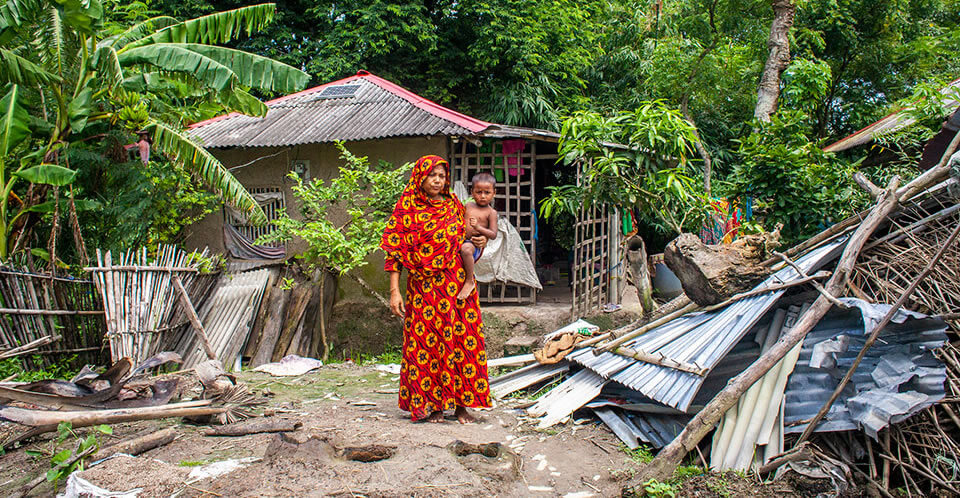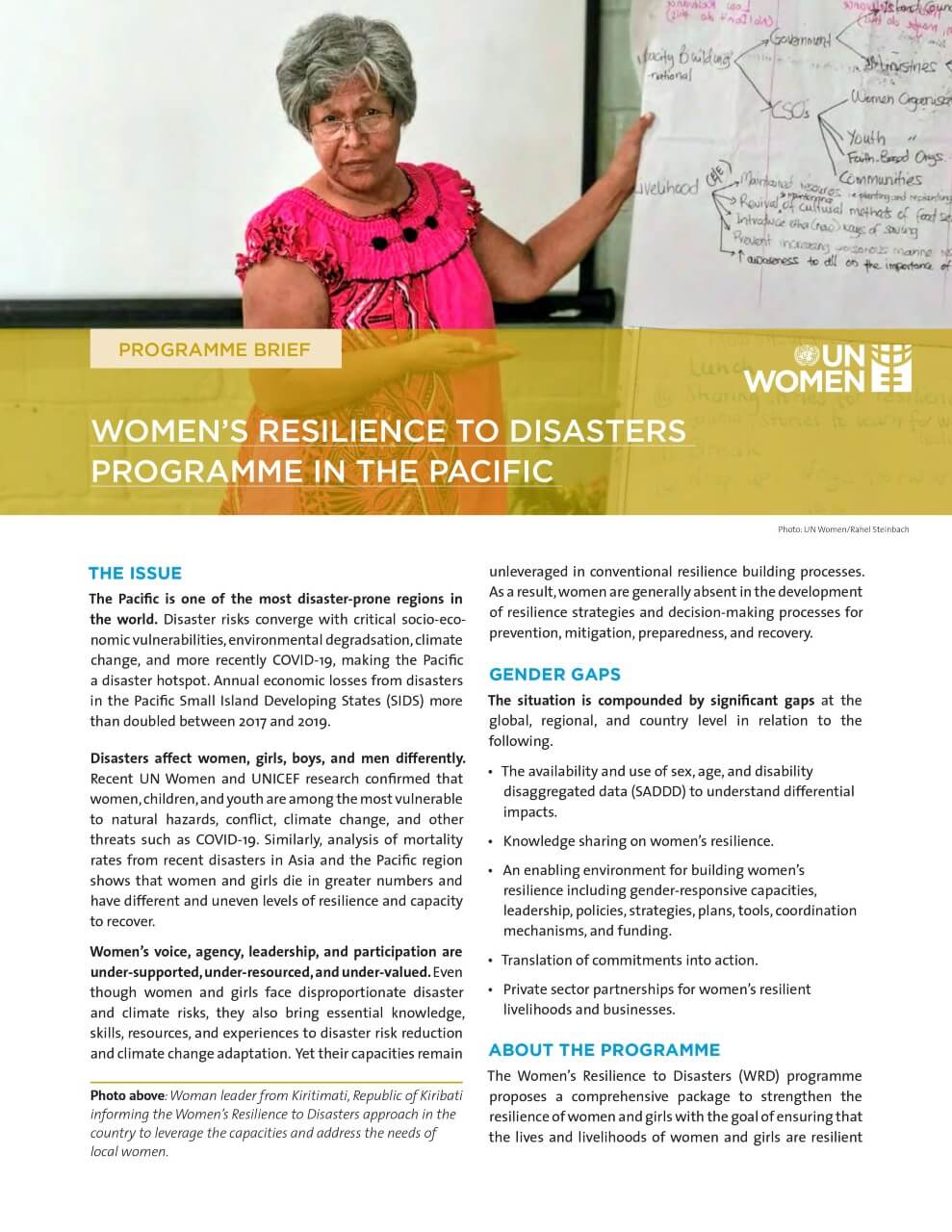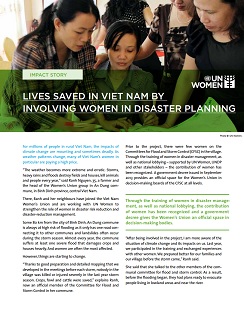Disaster risk reduction

Women and girls are disproportionately impacted by disasters and threats, including climate change. Due to gender-specific barriers and inequalities, women experience higher loss of lives and livelihoods during disasters and a longer recovery time. Across the board, from life expectancy to education, housing, health, safety, job security, and nutrition, women and girls are impacted more severely than men. Yet, women are largely excluded from shaping disaster risk reduction and resilience policy, strategies, and programmes.
Our solutions
The overall goal of UN Women’s disaster risk reduction (DRR) and resilience work is to save lives and livelihoods through gender-responsive—and thus better informed, targeted, and more effective—prevention, preparedness, and recovery.
UN Women leverages the voice, capacities, leadership, and agency of women and women’s organizations, and works hand in hand with governments, multilateral and bilateral organizations, and DRR and resilience practitioners to integrate gender dimensions into prevention, preparedness, and recovery processes and systems.
UN Women provides:
- knowledge and access to tools and expertise on the gender dimensions of risk;
- technical support and capacity building to increase gender dimensions in DRR and resilience policy frameworks, systems, processes, and tools;
- technical and financial support to women’s organizations to lead, advocate, and participate in DRR and resilience;
- technical support and bridging services to increase women’s leadership and gender equality in DRR and resilience coordination mechanisms, networks, and partnerships; and
- targeted action to increase women’s access to gender-responsive early warning systems, services and finance, and resilient infrastructure, livelihoods, and businesses.
The Women’s Resilience to Disasters Programme provides these services through a comprehensive package that aims to strengthen women’s resilience to disasters and threats, including climate change and COVID-19, across the world. For more information, please contact:.

